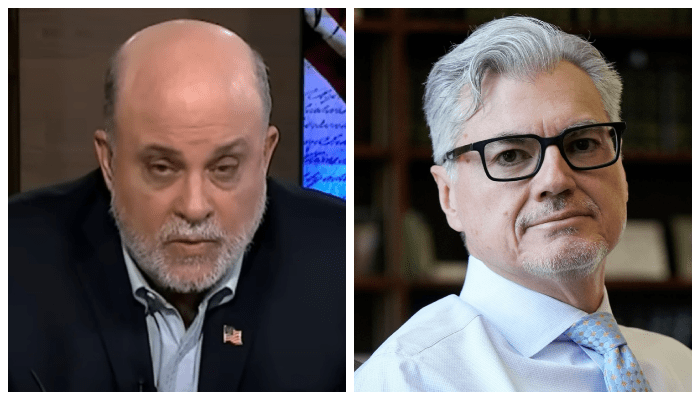Former President Donald Trump publicly called on the Supreme Court to hear and potentially overturn his guilty verdict last Thursday, and now, constitutional scholar Mark Levin has revealed a possible avenue to make that happen.
Trump was convicted on 34 counts tied to so-called election interference after facing a barrage of charges from Manhattan District Attorney Alvin Bragg. The charges revolve around an alleged scheme to conceal a $130,000 payment to adult film actress Stormy Daniels. The payment was meant to prevent her from disclosing a supposed 2006 affair with Trump before the 2016 election. The former president is set to appear in court on July 11th for sentencing.
Levin defended Trump on Tuesday, outlining a plan for Republicans to help Trump push the Supreme Court to rule on his conviction.“THE STATE OF NEW YORK SHOULD BE SUED IN THE SUPREME COURT,” wrote Levin on X. “New York prosecutors have sought and obtained civil and criminal judgments under unique New York laws against Donald Trump in New York courts before New York judges shortly before the Presidential election.
“Their purpose and the necessary effect of what they have done is to interfere in the forthcoming federal election by persuading voters in “swing states” not to cast ballots for ‘electors’ who would choose Trump to be President. The legal validity of these New York judgments has been challenged, but cannot be determined before the election,” Levin’s X post noted further.
“What New York has achieved (and what it will accomplish unless the Supreme Court takes prompt remedial action) is to make this and future federal Presidential elections chaotic and unpredictable. It subjects them to an aggressive attack on one candidate by a single partisan State choosing to weaponize its local laws and courts,” he added.
“States like Texas, Florida, Tennessee, North Dakota, Utah, and others that are strongly Republican could sue New York in an Original Action in the Supreme Court under the provision of federal law that authorizes actions in the Supreme Court if controversies between States (28 U.S.C. 1251(a)). They could seek, as relief, that New York be ordered to vacate the New York judgments against Trump,” he went on.
He then laid out a remedy the nation’s highest court could adopt: “The Court should also lay down a prophylactic rule to protect future Presidential elections from similar interference. It should declare that a State may not, in the year of a Presidential election, initiate any civil or criminal action that is based entirely on that State’s local law in its State courts against a Presidential candidate. The civil and criminal cases against Trump in the New York courts (or in Georgia’s local court) could be pursued and tried (if the prosecutors were still interested) after the election.”
He concluded: “Such a rule would be critical in the 2028 election. Incumbent President Biden has not been sued or prosecuted in the local courts of deeply Republican States because he has presidential immunity. But if the 2028 election involved no incumbent, the Republican States could do what New York has done to Trump and what future Democratic prosecutors are likely to emulate in their States– prosecute and sue the opposing candidate shortly before election before a judge who will probably have similar political views and secure one or more judgments that can be publicized and may have substantial effect in ‘swing states.'”



